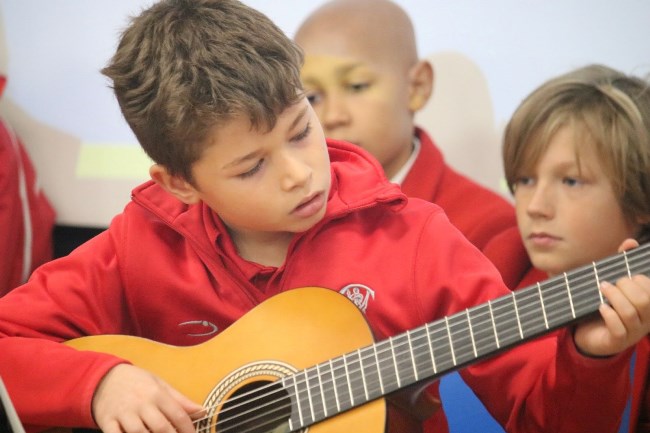This week my reflections are on a wonderful book I would recommend to all parents: Quiet: the power of introverts in a world that can’t stop talking by Susan Cain. There have only been a handful of books that have made such an impact on me as a teacher, school leader, and parent.
Research shows that one third to one half of the population is introverted and introversion has less to do with being shy and more to do with needing more or less stimulation. Put simply, extroverts crave lots of stimulation and novelty while introverts crave less. Despite this, many of our institutions are designed to favour extroverts and this means that the world is missing out on the strength and skills of nearly half of the population.
At St Christopher’s we treat children as individuals and, during the school day, introverts and extroverts have endless opportunities to dial up or dial down the amount of stimulation they are receiving. Our small class sizes allow children to receive the personal attention suited to their needs from teachers and support staff, and our community is one where we really do know our children with their interests, quirks of personality, and individual strengths and weaknesses. Our range of clubs caters to a wide range of interests, including the technical world of chess and the universe of Dungeons & Dragons, where all the vivid action takes place in the imagination rather than on a screen.
The wheels are in motion for next Summer Term’s Upper School production of Fame, with auditions taking place last week. For many, singing and dancing on a stage in front of hundreds is a dream, but equally many regard the idea with dread. In this way, there are many roles in the production backstage in set design, props, wardrobe, stage management, photography, and the Tech Team. All of these allow outlets for creativity, logistical challenges, and STEM, which are areas in which the naturally introverted often outshine others.
How can you support your introvert at home? The simplest, and oldest, answer is to fill your home with books. A child who prefers a quiet corner with a book to more active pursuits will find myriad new worlds to explore, and add new vocabulary and concepts to their ability to express themselves. This is a huge benefit not just to their work at school but to their development as confident communicators. An introverted child may not always communicate their desires and interests as clearly as an extrovert, but listen when they do and create the opportunities for them to explore new activities on their own terms. This could mean a drawer full of art paper and crayons, or a book all about baking cupcakes left next to a bag of flour on the kitchen table.
In a world where many of our systems and institutions are designed for extroverts I think it is of paramount importance that we make space (and quiet) for the insightful views, creativity and strength of the introverts in our families, schools and organisations.
Ms E Lyle, Head







